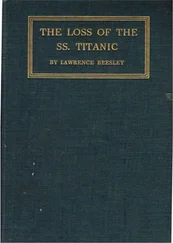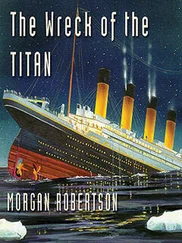Theodore Dreiser - The Titan
Здесь есть возможность читать онлайн «Theodore Dreiser - The Titan» весь текст электронной книги совершенно бесплатно (целиком полную версию без сокращений). В некоторых случаях можно слушать аудио, скачать через торрент в формате fb2 и присутствует краткое содержание. Жанр: Классическая проза, на английском языке. Описание произведения, (предисловие) а так же отзывы посетителей доступны на портале библиотеки ЛибКат.
- Название:The Titan
- Автор:
- Жанр:
- Год:неизвестен
- ISBN:нет данных
- Рейтинг книги:5 / 5. Голосов: 1
-
Избранное:Добавить в избранное
- Отзывы:
-
Ваша оценка:
- 100
- 1
- 2
- 3
- 4
- 5
The Titan: краткое содержание, описание и аннотация
Предлагаем к чтению аннотацию, описание, краткое содержание или предисловие (зависит от того, что написал сам автор книги «The Titan»). Если вы не нашли необходимую информацию о книге — напишите в комментариях, мы постараемся отыскать её.
The Titan — читать онлайн бесплатно полную книгу (весь текст) целиком
Ниже представлен текст книги, разбитый по страницам. Система сохранения места последней прочитанной страницы, позволяет с удобством читать онлайн бесплатно книгу «The Titan», без необходимости каждый раз заново искать на чём Вы остановились. Поставьте закладку, и сможете в любой момент перейти на страницу, на которой закончили чтение.
Интервал:
Закладка:
“I must give in!” Hosmer Hand had declared to Arneel and Schryhart, at the close of the Arneel house conference and as they stood in consultation after the others had departed. “We seem to be beaten to-night, but I, for one, am not through yet. He has won to-night, but he won’t win always. This is a fight to a finish between me and him. The rest of you can stay in or drop out, just as you wish.”
“Hear, hear!” exclaimed Schryhart, laying a fervently sympathetic hand on his shoulder. “Every dollar that I have is at your service, Hosmer. This fellow can’t win eventually. I’m with you to the end.”
Arneel, walking with Merrill and the others to the door, was silent and dour. He had been cavalierly affronted by a man who, but a few short years before, he would have considered a mere underling. Here was Cowperwood bearding the lion in his den, dictating terms to the principal financial figures of the city, standing up trig and resolute, smiling in their faces and telling them in so many words to go to the devil. Mr. Arneel glowered under lowering brows, but what could he do? “We must see,” he said to the others, “what time will bring. Just now there is nothing much to do. This crisis has been too sudden. You say you are not through with him, Hosmer, and neither am I. But we must wait. We shall have to break him politically in this city, and I am confident that in the end we can do it.” The others were grateful for his courage even though to-morrow he and they must part with millions to protect themselves and the banks. For the first time Merrill concluded that he would have to fight Cowperwood openly from now on, though even yet he admired his courage. “But he is too defiant, too cavalier! A very lion of a man,” he said to himself. “A man with the heart of a Numidian lion.”
It was true.
From this day on for a little while, and because there was no immediate political contest in sight, there was comparative peace in Chicago, although it more resembled an armed camp operating under the terms of some agreed neutrality than it did anything else. Schryhart, Hand, Arneel, and Merrill were quietly watchful. Cowperwood’s chief concern was lest his enemies might succeed in their project of worsting him politically in one or all three of the succeeding elections which were due to occur every two years between now and 1903, at which time his franchises would have to be renewed. As in the past they had made it necessary for him to work against them through bribery and perjury, so in ensuing struggles they might render it more and more difficult for him or his agents to suborn the men elected to office. The subservient and venal councilmen whom he now controlled might be replaced by men who, if no more honest, would be more loyal to the enemy, thus blocking the extension of his franchises. Yet upon a renewal period of at least twenty and preferably fifty years depended the fulfilment of all the colossal things he had begun—his art-collection, his new mansion, his growing prestige as a financier, his rehabilitation socially, and the celebration of his triumph by a union, morganatic or otherwise, with some one who would be worthy to share his throne.
It is curious how that first and most potent tendency of the human mind, ambition, becomes finally dominating. Here was Cowperwood at fifty-seven, rich beyond the wildest dream of the average man, celebrated in a local and in some respects in a national way, who was nevertheless feeling that by no means had his true aims been achieved. He was not yet all-powerful as were divers Eastern magnates, or even these four or five magnificently moneyed men here in Chicago who, by plodding thought and labor in many dreary fields such as Cowperwood himself frequently scorned, had reaped tremendous and uncontended profits. How was it, he asked himself, that his path had almost constantly been strewn with stormy opposition and threatened calamity? Was it due to his private immorality? Other men were immoral; the mass, despite religious dogma and fol-de-rol theory imposed from the top, was generally so. Was it not rather due to his inability to control without dominating personally—without standing out fully and clearly in the sight of all men? Sometimes he thought so. The humdrum conventional world could not brook his daring, his insouciance, his constant desire to call a spade a spade. His genial sufficiency was a taunt and a mockery to many. The hard implication of his eye was dreaded by the weaker as fire is feared by a burnt child. Dissembling enough, he was not sufficiently oily and make-believe.
Well, come what might, he did not need to be or mean to be so, and there the game must lie; but he had not by any means attained the height of his ambition. He was not yet looked upon as a money prince. He could not rank as yet with the magnates of the East—the serried Sequoias of Wall Street. Until he could stand with these men, until he could have a magnificent mansion, acknowledged as such by all, until he could have a world-famous gallery, Berenice, millions—what did it avail?
The character of Cowperwood’s New York house, which proved one of the central achievements of his later years, was one of those flowerings—out of disposition which eventuate in the case of men quite as in that of plants. After the passing of the years neither a modified Gothic (such as his Philadelphia house had been), nor a conventionalized Norman-French, after the style of his Michigan Avenue home, seemed suitable to him. Only the Italian palaces of medieval or Renaissance origin which he had seen abroad now appealed to him as examples of what a stately residence should be. He was really seeking something which should not only reflect his private tastes as to a home, but should have the more enduring qualities of a palace or even a museum, which might stand as a monument to his memory. After much searching Cowperwood had found an architect in New York who suited him entirely—one Raymond Pyne, rake, raconteur, man-about-town—who was still first and foremost an artist, with an eye for the exceptional and the perfect. These two spent days and days together meditating on the details of this home museum. An immense gallery was to occupy the west wing of the house and be devoted to pictures; a second gallery should occupy the south wing and be given over to sculpture and large whorls of art; and these two wings were to swing as an L around the house proper, the latter standing in the angle between them. The whole structure was to be of a rich brownstone, heavily carved. For its interior decoration the richest woods, silks, tapestries, glass, and marbles were canvassed. The main rooms were to surround a great central court with a colonnade of pink-veined alabaster, and in the center there would be an electrically lighted fountain of alabaster and silver. Occupying the east wall a series of hanging baskets of orchids, or of other fresh flowers, were to give a splendid glow of color, a morning-sun effect, to this richly artificial realm. One chamber—a lounge on the second floor—was to be entirely lined with thin-cut transparent marble of a peach-blow hue, the lighting coming only through these walls and from without. Here in a perpetual atmosphere of sunrise were to be racks for exotic birds, a trellis of vines, stone benches, a central pool of glistening water, and an echo of music. Pyne assured him that after his death this room would make an excellent chamber in which to exhibit porcelains, jades, ivories, and other small objects of value.
Cowperwood was now actually transferring his possessions to New York, and had persuaded Aileen to accompany him. Fine compound of tact and chicane that he was, he had the effrontery to assure her that they could here create a happier social life. His present plan was to pretend a marital contentment which had no basis solely in order to make this transition period as undisturbed as possible. Subsequently he might get a divorce, or he might make an arrangement whereby his life would be rendered happy outside the social pale.
Читать дальшеИнтервал:
Закладка:
Похожие книги на «The Titan»
Представляем Вашему вниманию похожие книги на «The Titan» списком для выбора. Мы отобрали схожую по названию и смыслу литературу в надежде предоставить читателям больше вариантов отыскать новые, интересные, ещё непрочитанные произведения.
Обсуждение, отзывы о книге «The Titan» и просто собственные мнения читателей. Оставьте ваши комментарии, напишите, что Вы думаете о произведении, его смысле или главных героях. Укажите что конкретно понравилось, а что нет, и почему Вы так считаете.










